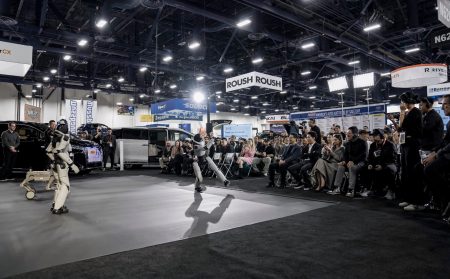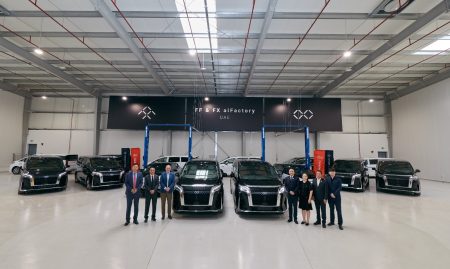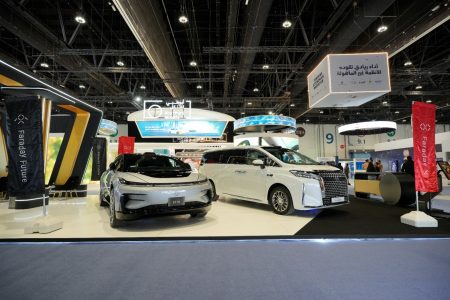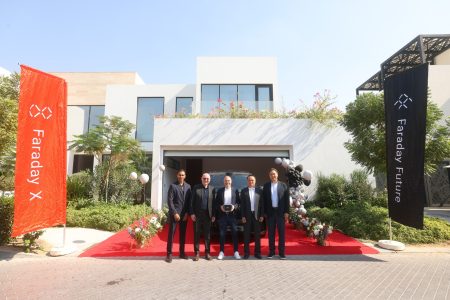Summarize this content to 2000 words in 6 paragraphs in Arabic Hello everyone, this is Cissy in Hong Kong.Donald Trump has signed a flurry of executive orders since being sworn in as US president last month, and it is driving many people around the world crazy.Just in the past week, sellers on Chinese cross-border ecommerce platforms like Temu, Shein and AliExpress were racing into the unknown as Trump put his stamp on trade and customs policy. First, he eliminated the de minimis rule that allowed items valued under $800 to enter the US without tariffs, then he paused the repeal as packages piled up at the US customs.The US Postal Service stoked further chaos when it suspended inbound parcels from China and Hong Kong, but again a reversal came, this time the very same day. Multiple sellers on these Chinese platforms told me they can’t believe how fickle the US government is becoming and that they have seen sales drop up to 30 per cent since Trump’s actions against these online retailers. Some said they are even thinking about shifting to different platforms, including Amazon.Although Trump paused his “beautiful” tariffs on Mexico and Canada, Chinese companies that have crossed the Pacific in the past three years to set up factories along the US-Mexico border to avoid tariffs may have to rethink their supply chains once again as geopolitical tensions spread beyond just Washington and Beijing.Supply chain relocation spurred by geopolitical tensions always interests me. It also reminds me of a funny encounter with Terry Gou, the founder of Foxconn, Apple’s biggest contract manufacturer, in early 2020 when I was in Taiwan covering the presidential election in the self-ruled island. I doorstepped Gou at a polling station and asked him if he would consider moving Foxconn’s Chinese facilities out of China amid geopolitical tensions. He didn’t answer my question and looked angry. “Which media outlet are you from?” he asked me. His wife Delia Tseng was very friendly, though, as she tried to comfort me by patting my head and saying, “It’s OK, it’s OK.”Apple, Foxconn’s biggest client, is no stranger to political tensions, having shifted a significant portion of production from China to other Asian countries in recent years. Now it is considering further diversification amid local regulatory pressure.Made in Indonesia?Apple has been speaking with suppliers about the feasibility of setting up iPhone final assembly in Indonesia, as the US tech giant works to lift a government sales ban on the iPhone 16 series, sources told Nikkei Asia’s Lauly Li and Cheng Ting-Fang.If the move is realised, it would mark Apple’s first iPhone assembly in the south-east Asian country, which currently lacks a robust supply chain for the device. Indonesia banned sales of the iPhone 16 last year after Apple failed to meet the requirement that at least 35 per cent of a smartphone’s components be locally made. Apple has been locked in months-long negotiations with Indonesia since the ban.One iPhone assembler has set up a subsidiary in Batam particularly for Apple and has started hiring engineers as part of the preparation, according to one source. Another source said it would take at least a year to build an iPhone facility in Batam if the decision is finalised.Although Apple’s smartphone market share in Indonesia is only about 1 per cent, the potential for growth is significant given the slowdown in global sales and hurdles in the Chinese market amid tensions with the USMemorable progressChina’s leading producer of memory chips is rapidly gaining global market share at the expense of South Korean competitors, strengthening Beijing’s drive to reduce its dependence on foreign technology, write the Financial Times’ Christian Davies, Song Jung-a and Zijing Wu.CXMT — ChangXin Memory Technologies — increased its share of the $90bn global DRam memory market from close to zero in 2020 to 5 per cent last year, according to Shenzhen-based consultancy Qianzhan.The company is also spearheading China’s efforts to break into the market for so-called high-bandwidth memory (HBM), a crucial component in running AI systems such as Open AI’s ChatGPT.G Dan Hutcheson, vice chair of consultancy TechInsights, said that CXMT’s rapid progress in the highly commoditised DRam sector was generating a “snowball effect”.“The more market share you gain, the larger your volume, the higher your yields go, the lower your costs and the more market share you gain again,” said Hutcheson. “That’s exactly how the Koreans pushed the Japanese out of the memory sector in the 1980s and 1990s.”Autonomous for allTesla may have reason to worry again. As approval for its FSD (full self-driving) system in China faces delays, its most formidable rival, BYD, has pledged to “democratise” autonomous driving with its latest God’s Eye system, writes Nikkei Asia’s Cissy Zhou.In a high-profile press conference held at its global headquarters in Shenzhen on Monday night, BYD founder Wang Chuanfu announced the company would deploy its most advanced self-driving system in nearly all of its models in order to make the technology accessible to everyone, as smart driving is becoming a key battlefield for auto players.Currently, most vehicles equipped with autonomous driving technology are priced above Rmb200,000 ($27,300) in the country, but most BYD models under Rmb100,000 would have the technology.The Chinese EV giant’s move is expected to accelerate a market shake-up, with smaller automakers already facing consolidation. For those still lagging in smart transformation, this is not just a test of technological progress but a fight for survival.Rockier than fearedThe latest US export controls on China’s chip sector are causing more disruption than anticipated, as TSMC, the world’s top contract chipmaker, takes a strict compliance approach, sources told Nikkei Asia’s Cheng Ting-Fang.TSMC has informed Chinese clients using its 16nm or better production technologies that it cannot ship orders to them unless they use chip packaging services from a US-approved supplier. Initially, the industry believed the restrictions targeted only AI chips with over 30bn transistors, but TSMC, after consulting legal experts and the US Commerce Department, has extended the policy to all applications.This move is a major setback for Chinese chip developers working on everything from mobile devices to autonomous driving. Companies now face urgent choices: switch to approved packaging suppliers or seek US approval to continue working with TSMC.Suggested readsIs DeepSeek next in line for a TikTok-like US ban? (Nikkei Asia)Top China chipmaker SMIC says tariff war sparking ‘rush orders’ (Nikkei Asia)Arm’s CEO on the future of AI and why he does not fear DeepSeek (FT)Japan Display explores sale of former iPhone LCD plant (Nikkei Asia)Modi calls for AI governance and standards at Paris AI summit (Nikkei Asia)SoftBank’s Masayoshi Son and OpenAI’s Sam Altman bet on AI — and each other (FT)Taiwan and TSMC rush to head off Donald Trump’s tariff threat (FT)SoftBank falls to $2.4bn loss amid plans for huge AI investments (FT)China’s tech stocks enter bull market after DeepSeek breakthrough (FT)From Toyota to Nissin, Japan companies open spigot on US investment (Nikkei Asia)#techAsia is co-ordinated by Nikkei Asia’s Katherine Creel in Tokyo, with assistance from the FT tech desk in London. Sign up here at Nikkei Asia to receive #techAsia each week. The editorial team can be reached at [email protected].
rewrite this title in Arabic Apple eyes Indonesia and BYD goes big on self-driving
مقالات ذات صلة
مال واعمال
مواضيع رائجة
النشرة البريدية
اشترك للحصول على اخر الأخبار لحظة بلحظة الى بريدك الإلكتروني.
© 2026 جلوب تايم لاين. جميع الحقوق محفوظة.








